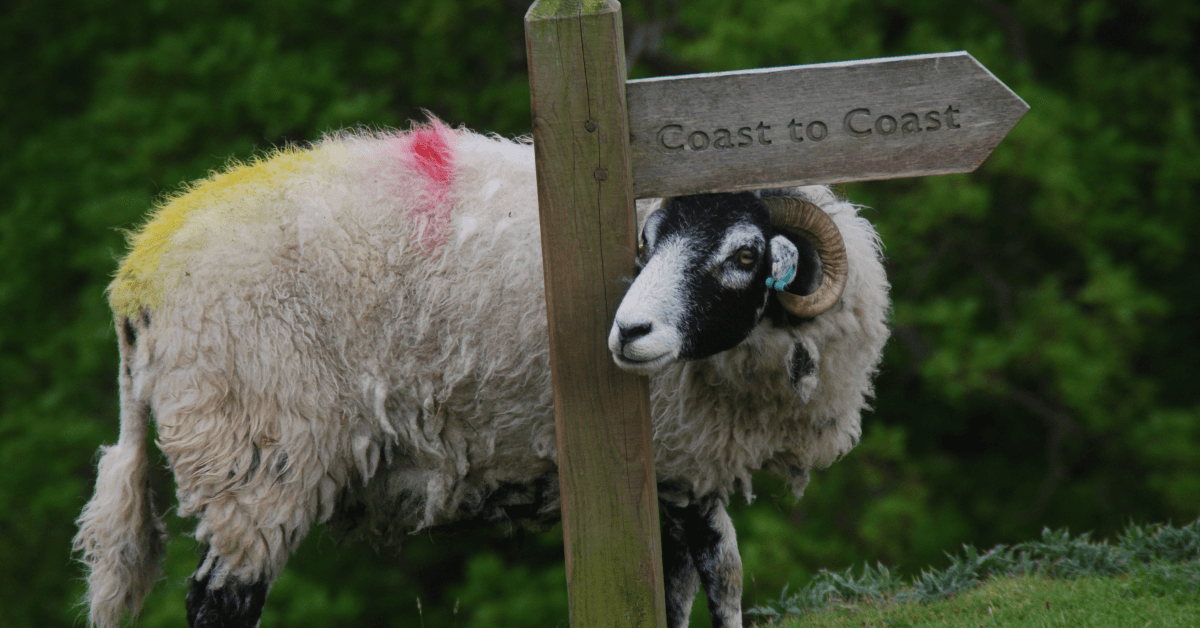by Sue Talbot
From the verdant rolling hills of the Cotswolds to Scotland’s mountainous landscapes, the UK’s countryside is a natural paradise for walkers, cyclists and wildlife lovers.
But with the increasing popularity of outdoor pursuits, it’s more important than ever to remember that the countryside is not just for leisure, but also a working environment and a home for many people.

The countryside is a shared space that requires mutual respect and understanding. By being mindful of our actions and their impact on the environment and local communities, we can help to ensure that our landscapes remain unspoilt for future generations.
Respecting Farmers and Landowners
Farmers are the backbone of the countryside, working tirelessly to manage the land, tend to their animals and produce the food that ends up on our tables. When visiting the countryside, we should respect their property and their way of life.
- Always follow the Countryside Code, which advises visitors to respect private property, stick to designated paths and avoid damaging crops or scaring livestock.
- Close gates behind you to keep livestock from escaping.
- If you need to cross private land, always ask permission from the landowner or farmer. They may have specific rules or restrictions in place to protect their property or livestock.
- Be mindful of farm equipment and livestock. Avoid approaching or touching animals and never try to feed them.
- If you’re planning to walk or cycle through farmland, try to avoid peak working hours (usually early morning or late afternoon) to minimise disruption.

Protecting Wildlife and the Environment
Our countryside is brimming with a colourful array of wildlife, from birds and bees to deer and badgers. When you’re out and about exploring natural spaces, remember to respect and protect these creatures and their habitats.
- Always follow the Countryside Code’s guidelines for protecting wildlife, including keeping dogs under control, avoiding disturbing nests or habitats, and making sure not to litter.
- Be mindful of sensitive habitats, such as nature reserves or Sites of Special Scientific Interest (SSSIs). Follow designated paths and avoid damaging vegetation or disturbing wildlife.
- If you're exploring woodland or heathland, be aware of the risk of wildfires and take steps to prevent them, such as fully extinguishing cigarettes and not using BBQs or campfires.
Respecting Rural Communities
Rural communities are at the heart of the countryside, providing essential services, supporting local businesses and preserving more traditional ways of life.

- Pay attention to local signs and respect them.
- Be aware of parking restrictions and avoid blocking narrow lanes or village streets.
- Always be mindful of noise levels, especially in quiet villages or rural areas. Avoid playing loud music or making excessive noise that might disturb residents.
- Respect local customs and traditions, and even get involved yourself. You might attend village fetes or support local farmers' markets.
- Support local businesses, such as pubs, cafes and shops, which are essential to the economy of rural communities.
Additional Tips and Reminders
- Always follow the Countryside Code and local guidelines for walking, cycling and horse riding.
- Be prepared for changing weather conditions and wear suitable clothing and footwear.
- Bring plenty of water, snacks and sun protection, especially during hot weather.
- Respect other users of the countryside, locals and visitors alike.
- Always clean up after your dog and dispose of waste properly.
- Be friendly to people that you meet on your journey.









